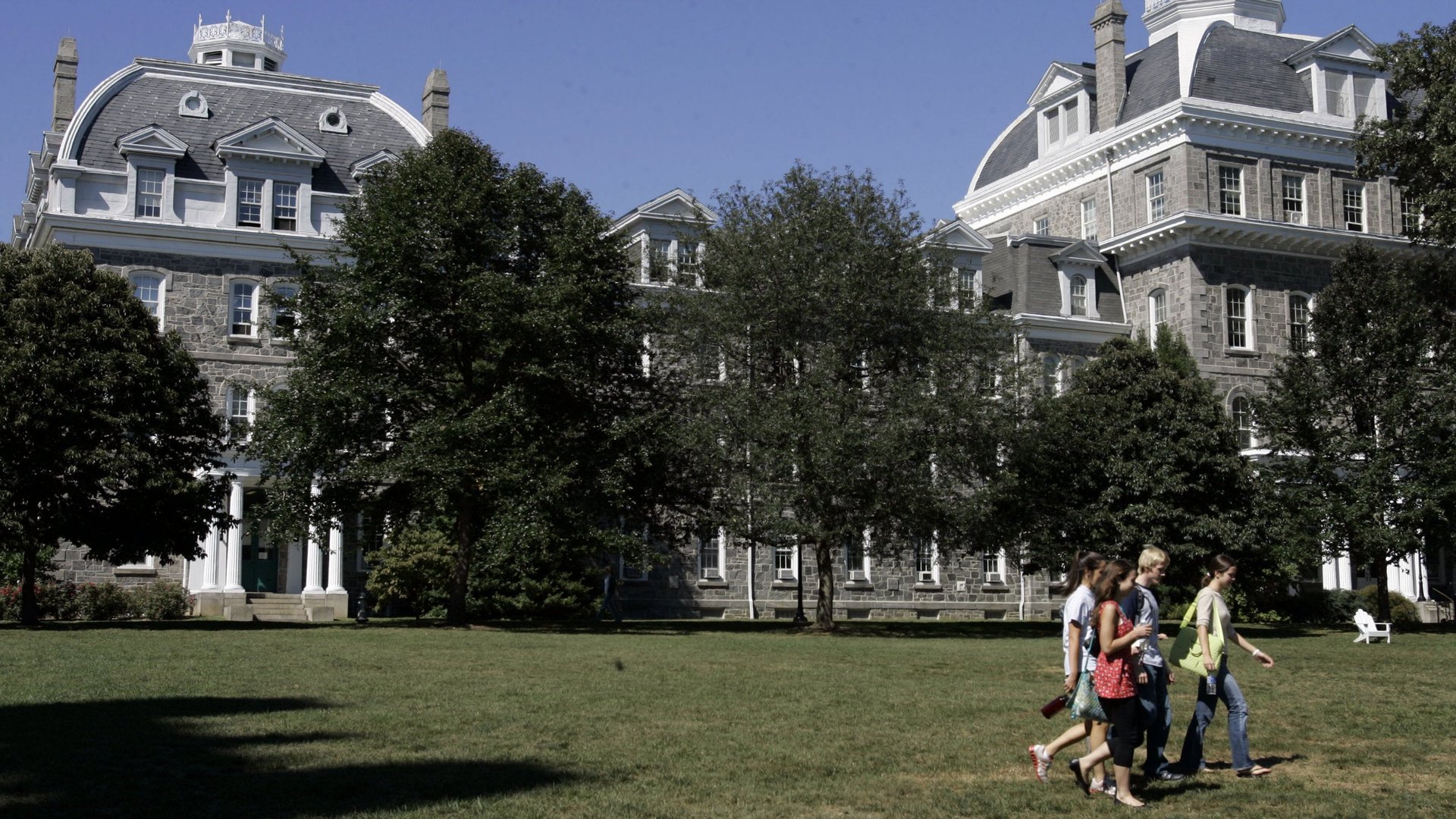Students, if you’re waiting for graduation to enter the real world, you’ve waited too long
When I was younger, I hated when my mom told me: “Life is not fair.” But she was right. Twenty years later, life is still not fair. As Bijan Stephen points out in his Quartz piece “We millennials don’t stand a chance,” opportunity is no longer pounding at the doors of soon-to-be graduates, even at colleges and universities as elite as Yale. The result, argues David Brooks in a recent New York Times column, is a generation of “Cynic Kids.”


When I was younger, I hated when my mom told me: “Life is not fair.” But she was right. Twenty years later, life is still not fair. As Bijan Stephen points out in his Quartz piece “We millennials don’t stand a chance,” opportunity is no longer pounding at the doors of soon-to-be graduates, even at colleges and universities as elite as Yale. The result, argues David Brooks in a recent New York Times column, is a generation of “Cynic Kids.”
Stephen writes:
We’re cynical because we have to be. America’s economy is self-destructing, wealth inequality is at historic highs, and there’s a chronic shortage of employment, especially for recent grads.
His assessment of the poor job prospects of educated twenty-somethings is difficult to dispute, but this is the worst time to be cynical. The legacy of our parents’ generation’s will include The Great Recession, the polarization of the American political system, strained public budgets, and failure to adequately address climate change (just to name a few). We twenty-somethings can shake our fists at them, but nothing will change the eventuality that the problems will be ours alone. Whining about our circumstances will do no good.
In the fall of 2008, I was a sophomore studying economics at Swarthmore College when Lehman Brothers filed for Chapter 11 bankruptcy. The brilliant seniors I knew graduated that spring into a hostile job market, and the career services office was as blindsided and overwhelmed as the students were. Colleges and universities struggled to adapt to the new economic realities, and plummeting endowments made the refuge of funded graduate programs an option for fewer of us. Even law school, the classic fallback for liberal arts graduates, was a less attractive option as debt-burdened young lawyers struggled to find jobs.
I knew the linear plans I had tentatively laid out in my head had to change. Unsure as to how, exactly, I went to a town hall meeting on campus with a Pennsylvania congressman, retired Admiral Joe Sestak. I was inspired by a lively conversation about environmental policy and stayed after the event to get his card. By summer, I was working full time on his Senate campaign as he challenged Senator Arlen Specter in the Democratic primary, and when fall of 2009 arrived, I continued campaigning instead of returning to college.
By the time I returned to finish my final semester of classes, I had spent three semesters away and had built up a resume that included full- time work on four federal campaigns. I had learned to collaborate in a professional environment as opposed to an academic one, write professional press releases, create media events, write speeches and op-eds, prepare a candidate for editorial board meetings, and to create professional relationships with the press after years of being a voracious consumer of media. I sought out mentors who generously and patiently offered me feedback and support, and professional relationships developed into friendships and vice versa. I, too, am facing a challenging job market, but I am confident in my transferable skills, that I have held the title of communications director on a competitive congressional campaign, and that I have a professional network.
Taking the attitude of “we don’t stand a chance” is not just cynical, it’s a cop out. Opportunities exist, but most of us have to seek them out. It can involve humbly asking strangers to take a chance on you; attending events where you can meet them; having the the flexibility to look beyond the cities where we pictured ourselves living as young professionals; advocating and promoting ourselves; and most importantly, developing thick skin and not taking rejection personally. Understanding the the new economic reality can inform our decisions as job-seekers and make us savvier. Stephen wrote of his seasonal music selection; I recommend that he and his classmates add Daft Punk’s “Harder, Better, Faster, Stronger” to their spring playlists.